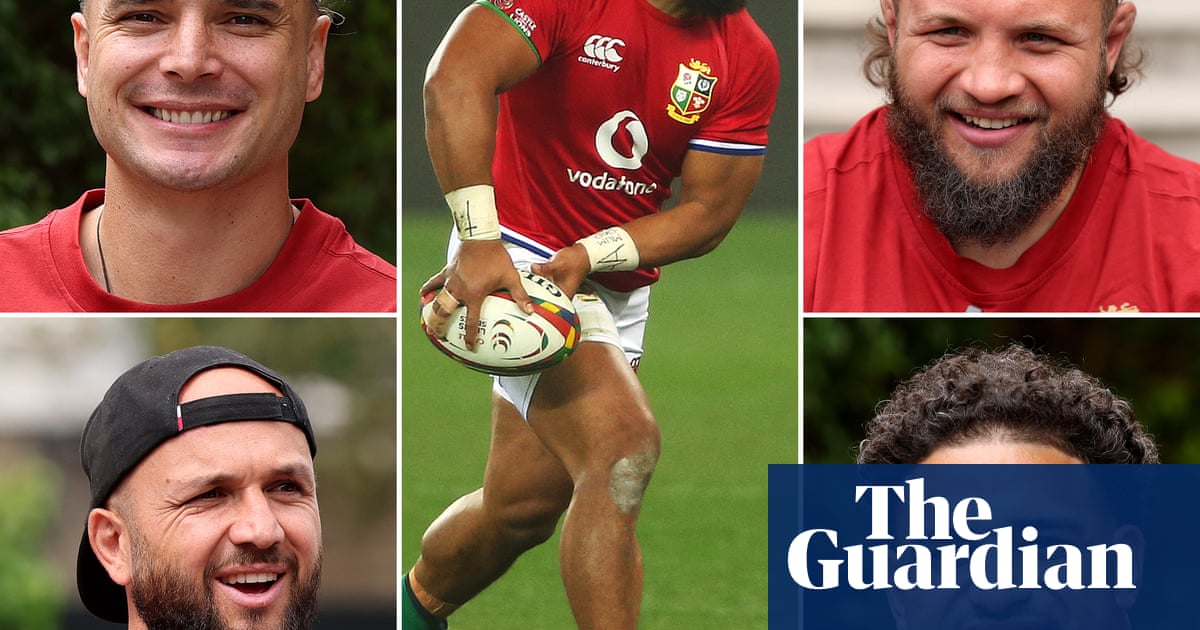For the class of 2017 it was the Geography Six and for the current crop, it may prove to be the Southern Hemisphere Seven.Andy Farrell’s squad announcementwas low on controversy, on glaring omissions or shock inclusions, and eventhe Owen issuewas dealt with diplomatically. In the days since, however, provenance has been raised as a problem.
Farrell selected in his squad three players born in New Zealand, two in Australia and two in South Africa. Willie John McBride – a legend of five Lions tours – is apparently “bothered” by it and is not alone in expressing concerns at the number of foreign-born players in the 38-man squad.
All seven are, of course, entirely eligible. Mack Hansenand Sione Tuipulotuwere born in Australia but qualified for Ireland and Scotland respectively via a parent or grandparent. Bundee Aki, Jamison Gibson-Park, James Lowe, Pierre Schoeman and Duhan van der Merwe all qualified on residency grounds. For the record, Marcus Smith was born in Manila and Joe McCarthy in Manhattan while Huw Jones was born in Leith, moved to the south of England as a child and spent his formative rugby years in South Africa.
In short, nationality is a complex issue and each player has had their own journey towards a seat on the plane to Australia. Tuipulotu admits he “didn’t grow up dreaming of playing for Scotland or the Lions, that’s the truth,” before adding: “But this is where my path has led me.” He speaks of feeling the need to prove his allegiance and Lowe agrees. “Obviously when you don’t have the blood running through your veins, there is a little bit of that.”
The merits of the residency rule have long since been debated and, when World Rugby extended the qualification period from three years to five, it felt like the admission of a loophole needing to be closed, or at least tightened. Certainly, the proliferation of “project players” has dried up since then.
That Farrell’s selections have provoked criticism now should be met with unease, however. Hansen was the last of the seven players to make his Test debut three years ago and it is sanctimonious to suggest players with more than 300 Test appearances between them are not befitting of the precious red jersey.
“When I play rugby, I play better when there is a chip on my shoulder anyway,” says Tuipulotu. “I’ve been nothing but embraced by the Scottish public since I’ve been playing for Scotland. There are always going to be a couple of people like there are for some of the Irish boys, but I take that in my stride because I don’t blame those people, either. I’m looking forward to showing how committed I am to playing for the Lions with how I play and I can’t wait to get over there.”
After making his comeback from a long-term pectoral injury last weekend, Tuipulotu is the frontrunner for the Test No 12 jersey in Australia. Before injury struck, he captained Scotland against the Wallabies last autumn and his grandmother, Jaqueline, flew over from Australia to take her place in the Murrayfield crowd.
“In those early days, just to be completely transparent, you have that feeling of: ‘Am I part of this?’” Tuipulotu says. “When my gran came over before the Australia game, it allowed the public to put a face to the story, listen to how much it meant to her. I think that gave eyes to the public that my story is authentic.”
Sign up toThe Breakdown
The latest rugby union news and analysis, plus all the week's action reviewed
after newsletter promotion
The sleepless nights brought on by fears that his injury might cost Tuipulotu his place in the Lions squad only highlight his determination to prove himself this summer. “I think it was just the fact it was my pec,” he says. “If you had asked me what the first big injury of my career [would be], I’d say my ankle or my knee but the fact that it was my boob just didn’t make any sense to me.
“I just felt it was over for me and I put so much on myself that I really wanted to be a Lion because I know how much it means to people over here.”
Lowe, meanwhile, is set to join the select band of players who have played for and against the Lions. In 2017 he lined up at full-back as the Maori All Blacks were well beaten by Gatland’s tourists in Rotorua. “I think everyone would admit that was their first actual Test match, the first one they properly turned up for,” Lowe says. “It was an introduction into what it actually meant to the boys playing for the Lions and a level of intensity that was unmatched.
“When I was first selected for Ireland, all the people come out of the woodwork saying: ‘How is this person representing Ireland?’ But the rules are there. We’ve all done our time. I am fully embedded in the culture of Ireland. Sione’s captained Scotland. You don’t have to question where his allegiance lies. My old man walks around in an Ireland jersey and a Leinster jumper.
“Everyone’s got a different story, my story just didn’t start in Ireland. But I can see it ending in Ireland. My two kids were born in Ireland. My wife and I are super happy with everything Ireland has given us and we don’t see ourselves moving.”
